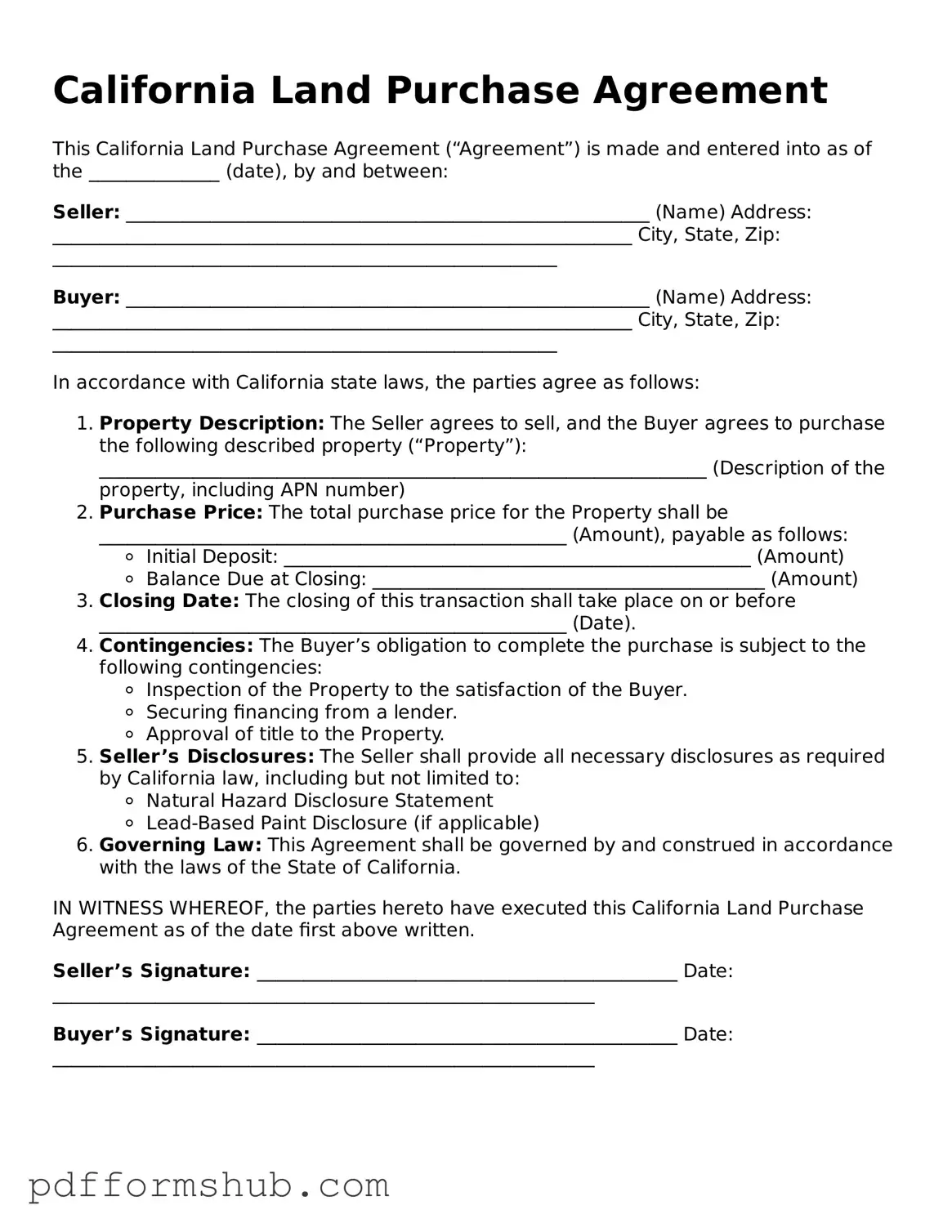Attorney-Verified Land Purchase Agreement Form for California State
The California Land Purchase Agreement form is a legal document that outlines the terms and conditions under which a buyer agrees to purchase land from a seller in California. This agreement serves to protect both parties by clearly defining their rights and obligations throughout the transaction process. Understanding this form is essential for anyone looking to navigate the complexities of real estate in the Golden State.
If you're ready to proceed with your land purchase, fill out the form by clicking the button below.
Customize Form

Attorney-Verified Land Purchase Agreement Form for California State
Customize Form

Customize Form
or
Free PDF Form
Short deadline? Complete this form now
Complete Land Purchase Agreement online without printing hassles.